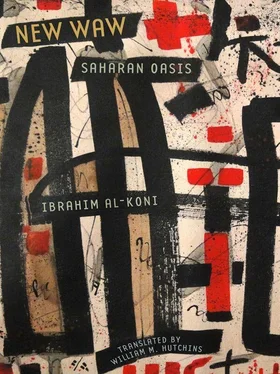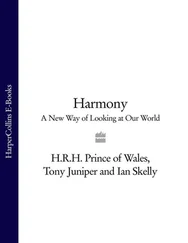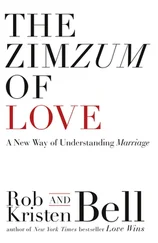“Kill her?”
“And if a girl loves a young man, she poisons his food!”
“I won’t deny that you know more than anyone else about the tribes of the forestlands, but I’ve never heard about this hideous tribe before.”
“There they think that the lover doesn’t win his beloved unless he removes her from the desert!”
“Fetishists! This is the religion of those fetishists!”
“Our stranger fell truly in love with our maiden; so he took her!”
“He took her?”
“Yes, this is the way they talk. They say, ‘He took her,’ when he has killed her.”
He was silent for a moment and then continued, “If you all had brought me a scrap of his clothing, I would have known how to prevent his foul deed. But the clever rogue understood this and was careful not to leave behind any clothing from the very first day.”
“I sent riders in pursuit of him. They’ll bring him back bound with palm-fiber ropes.”
“The riders won’t bring him back.”
“How can you be so certain?”
‘‘I know this community. They’re never caught.”
“Is he a human stranger or a jinni from the tribes of the Spirit World?”
The diviner was silent. Then he smiled enigmatically. He rolled a stone with his sandal and said almost in a whisper, “But he will return.”
The leader stared at him before remarking, “I see you speak as if this were a certainty.”
The diviner limited his response to a nod. Then the leader asked, “Did you read this in the bones of sacrificial animals?”
The diviner shook his turban no. In his lusterless eyes the leader noticed an inchoate sorrow.
With his sandal he too rolled a stone, as if imitating the diviner’s gesture. The sun bowed to kiss the stern horizon, which extended like a taut bow, and spilled a profuse purple glow over the wasteland. The diviner followed this glow as it poured forth and washed the pebbles, shrubs, and boulders. He admitted, “I confess, Master: I knew he would do this.”
The leader rolled away another stone. He stopped and stared at the void for an instant. As he walked on, the diviner told him, “Master, I heard him say, ‘We must dispense with things that we love more than we should.’”
The leader paused and — with the intoxication of the possessed — repeated, ‘“We must dispense with things that we love more than we should.’” He fell silent, and his silence was matched by the silence of the desert. It seemed that the wasteland thought it should keep quiet and listen too.
In the leader’s eyes, the diviner saw the leader’s tranquility, a sage’s tranquility, a hermit’s tranquility. This wasn’t normal tranquility; it was something nobler. It was childhood. Yes, the leader wouldn’t be a leader if his eyes didn’t channel childhood. The sage wouldn’t be a sage if his eyes didn’t channel childhood. The hermit wouldn’t deserve the title of hermit if his eyes didn’t channel childhood. Childhood is our lost oasis. Childhood is the oasis we seek. There is no good in an eye devoid of childhood. Do not trust a creature in whose eyes you do not discover childhood.
As though chanting, the leader repeated, “‘We must dispense with things that we love more than we should.’ How harsh that is!”
He took some steps and clasped his hands behind his back the way a man planning to walk a long distance does. In a different voice he said, “Do you know? I’ve always tried to say something like this.”
The diviner acknowledged, “I have as well, but we never hear what we want to say until others state it for us. This is the secret of wisdom, Master.”
“You’re right.”
The diviner gazed at him and discovered moisture like tears in his eyes.
9
Many wadis flowed with water in the northern desert, many cavaliers courted many virgins before the wadis filled with water, and the women poets recited extremely beautiful poems about love, war, and disgrace.
The tribe discovered that it had stayed in that place longer than it should have, and the sages were of the opinion that they should let this land return to nature. So they ordered the drums struck to signal a migration to the north.
The same night that the drums were struck, the herald made the rounds to alert people concerning what had happened at the tomb. Some individuals had gone to the cemetery at the foot of the hill and found the beauty’s tomb empty.
The leader arrived to find the diviner waiting for him. They exchanged enigmatic glances by the light of the full moon. Then they set off for a walk in the open countryside as if by prior arrangement. They didn’t speak. They did not speak till they were separated from the tumult of the masses and were certain that the desert had lent an ear and begun to listen.
The diviner began, “Didn’t I tell you he’d return?”
“Yes. He disappeared that day as if he was from the Spirit World and returned today as if he was from the Spirit World.”
“You don’t realize, Master, that he has been waiting. …”
“Waiting?”
“Yes. He waited for the dirt to claim its share of the dirt’s gift.”
“The truth is that I don’t understand.”
“He waited till the dirt had eaten the flesh, leaving him the bones.”
“What will the wretch do with the bones now they have moldered?”
The diviner didn’t reply. He didn’t stop. He didn’t roll a stone with his sandal. He kept walking forward as if he had decided to cross the desert on foot, to migrate, to dispense with everything.
Then he said, “He’ll make talismans from them. A talisman for his neck, one for his veil’s pleat, one for his left wrist, one for his right wrist, and one for the pommel of his saddle. The talisman is a symbol, and the symbol is the lover’s language.”
“Did you say ‘symbol’?”
Unconsciously the diviner hastened his steps. The diviner knew that the desert is a temptation. The diviner knew that the desert entices people. The diviner knew that going into the desert is a voyage, because the naked continent does not accommodate people who come for sightseeing. Because the only law it recognizes is travel. He outpaced the leader by some distance.
Panting, he said, “The lover knows better than anyone else the misery of destiny, Master. He knows he will never obtain anything, so what matters to him is the symbol. The talisman is the only symbol, Master.”
The leader quickened his pace as well. He hastened at a speed inappropriate for a leader, inappropriate for a sage, but didn’t feel comfortable calling to ask the diviner to slow down.
The diviner pulled farther away and the distance between them increased, but the leader stumbled stubbornly after him.
In a strange voice he raved, “The symbol. What’s important is the symbol.”
He studied the horizon, which was flooded by light like daytime. When he realized that the diviner was far ahead of him, he said aloud to himself, “‘We must dispense with things that we love more than we should.’ How cruel this is; how beautiful this is!”
He repeated the phrase in the wasteland. Then he heard it again like an echo of a mysterious call.
______________
Author’s Note . Successive generations have affirmed that these events took place before the tribe became sedentary, before the leader’s tomb became a peg that tied them to the earth. Even so, some narrators feel that this tale could have occurred in any age and that we may find it playing out in the dwellings of any tribe headed by a leader who is assisted by a diviner.
He is like a witness, isolated from everyone, but observes the play surreptitiously.
The Upanishads
1
They came that day too.
Читать дальше












